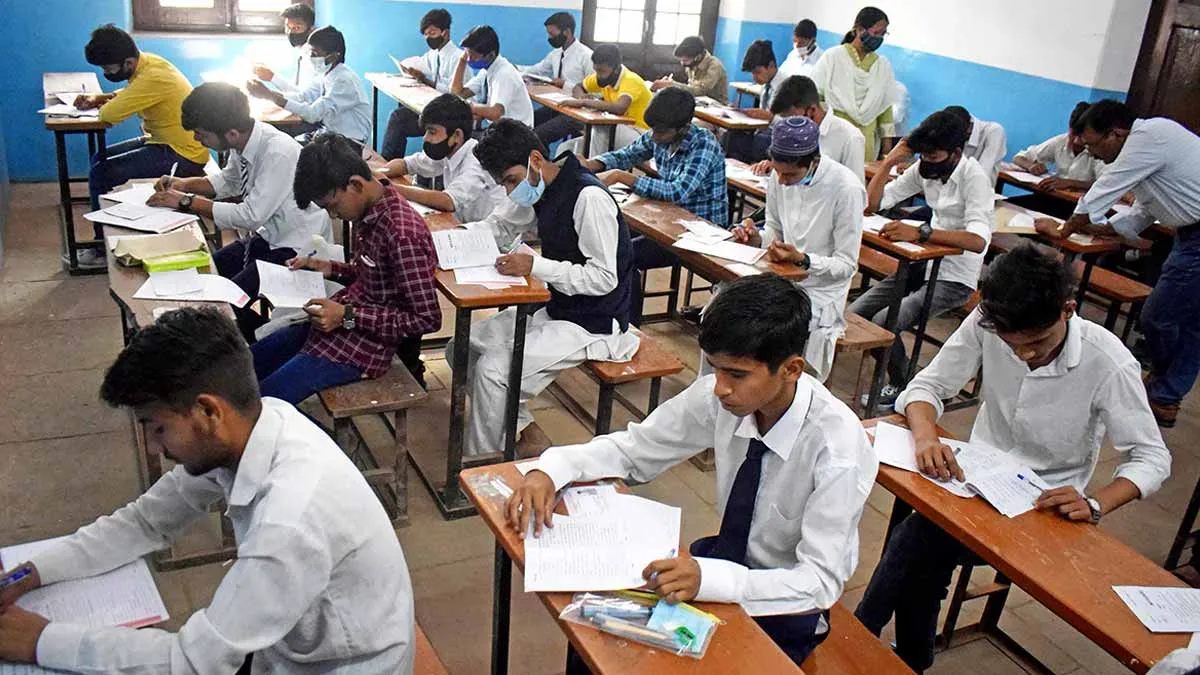
Sweaty palms and making constant runs to the washroom are feelings we have all felt before our board exams. This is the time when relatives swarm near you and covertly remind you of how this is a life-altering experience and is imperative in deciding your “future”. While we acknowledge that students deal with exam anxiety and find it difficult to focus, we cannot overlook the fact that parents undergo immense pressure too.
Table of Content:-
CHECK YOUR
MENTAL HEALTH

That being said, parents are also sole facilitators of the process; their reaction and behaviour determines how their child will view the exams and deal with the pressures of the same. The onus lies on parents and teachers to help the child with exam anxiety and maintain focus. Here are 5 expert-approved tips for parents by Dr Sajeela Maini, Senior consultant, Psychiatry, Sir Ganga Ram hospital, New Delhi.
RELATED: UPSC CSE Mains Result 2024 Declared; How To Cope With Exam Results Disappointment
1. Refrain From Adding Extra Pressure

Dr Maini strongly emphasises, “First of all, don't give undue pressure of results on the child. You have to refrain from giving targets to the child that are set in stone by asking them to mandatorily achieve this or achieve that, or that you have to reach this level and secure this percentage.”
Parental pressure, whether direct or indirect, has been shown to have a significant negative impact on children's psychological health. A study suggests that children are more likely to suffer from depression if they are subjected to parents' unreasonable expectations and frequent verbal abuse.
Furthermore, research indicates that children with controlling parents actually perform worse in school, despite the fact that parents frequently encourage their children to succeed academically. Persistent pressure curbs their natural will to do well.
2. Engage Your Child In Physical Activity
Our expert says that the exams will put undue stress on the child's mind and they will not be able to perform to their optimum level. The child should engage in outdoor activities while or after studying. One hour of physical activity is absolutely essential as it will increase the focus of the child on studies and release stress.
“Playing a stress-relieving instrument, engaging in stress-relieving activities, or receiving release therapy can help children become more focused and reduce their anxiety”, says Dr Maini.
3. Ensure Your Child Doesn’t Stay Up All Night
Parents should focus more on relaxation techniques especially because the child tries to compromise on his sleep. It is very important to refrain from staying up all night as ultimately it will impact your child’s performance and their focus. The child should sleep at least eight hours a day. According to research, your child may become less attentive and have trouble judging situations and making judgements if they don't get enough sleep. Lack of sleep can also make healthy adults and teenagers feel more confused, angry, depressed, and anxious.
4. Make Your Child Practice The 40 By 20 Rule
-1735533330529.jpg)
The 40 by 20 rule states that a youngster should take a 20-minute break after studying for 40 minutes. The child's performance, cognitive ability, and memory will all improve if he takes a 20-minute break. They will also be able to focus better, relax, and perform well on the test. However, if at all possible, avoid forcing the child's mind to achieve this proportion.
Burnout can be avoided by taking frequent pauses. You may sustain greater energy levels throughout the day by giving yourself permission to take regular breaks from your work. In the long run, this can improve motivation by establishing a sustainable work rate.
Including gaps in your schedule enables you to take some time to think. You can review your progress throughout these brief breaks, which may help you make better decisions. When working on complicated projects, this self-evaluation can be quite important.
5. Avoid Comparing Your Child With Other Children
Each child is unique, with their own pace of growth and individual strengths. Comparing your child to others might seem harmless or even motivational, but it can deeply affect their emotional and psychological well-being. Constant comparisons can create stress, as they may feel they are constantly being measured against unattainable standards.
Over time, this can chip away at their self-esteem, leaving them feeling inadequate or unworthy. Rather than inspiring improvement, such comparisons often discourage children, leading to feelings of frustration and demotivation.
6. Reduce Screen Time
Youngsters today spend a lot of time on their phones, playing games and watching reels. While it's understandable that they seek entertainment, excessive screen time can have a significant impact on their overall performance and well-being. The more time they spend in front of screens, the more fatigued they become, leading to a decrease in their ability to focus and perform well in other important areas, such as studying.
As Dr. Maini has pointed out, we must encourage children to limit their screen time. Instead of relying on screens to relax, it's crucial to engage them in more active, physical pursuits. Activities like playing football or other cardio exercises are not only healthier but also more effective in promoting relaxation and boosting energy levels. Reducing screen time and encouraging physical activity can significantly improve both their mental and physical well-being. Get them to exercise. Play on the playground, not on the screen. That should be the rule.
RELATED: Exam Result Stress: 10 Effective Strategies to Overcome Performance Anxiety
Takeaway For Parents

As students and parents approach the CBSE 2025 exams, it is essential to prioritise the well-being of our children. Dr. Maini's expert advice highlights the importance of refraining from putting undue pressure on children, ensuring they have a balanced approach to studying and relaxation. Encouraging physical activity, ensuring adequate sleep, and following strategies like the 40 by 20 rule can help boost their focus and performance.
Additionally, avoiding comparisons with other children and reducing excessive screen time can lead to better mental and emotional health. By supporting our children in a balanced and healthy way, we can help them achieve their best without compromising their well-being. We wish the best to the batch of 2025!
[Image Credits: ANI]
Also watch this video
How we keep this article up to date:
We work with experts and keep a close eye on the latest in health and wellness. Whenever there is a new research or helpful information, we update our articles with accurate and useful advice.
Current Version